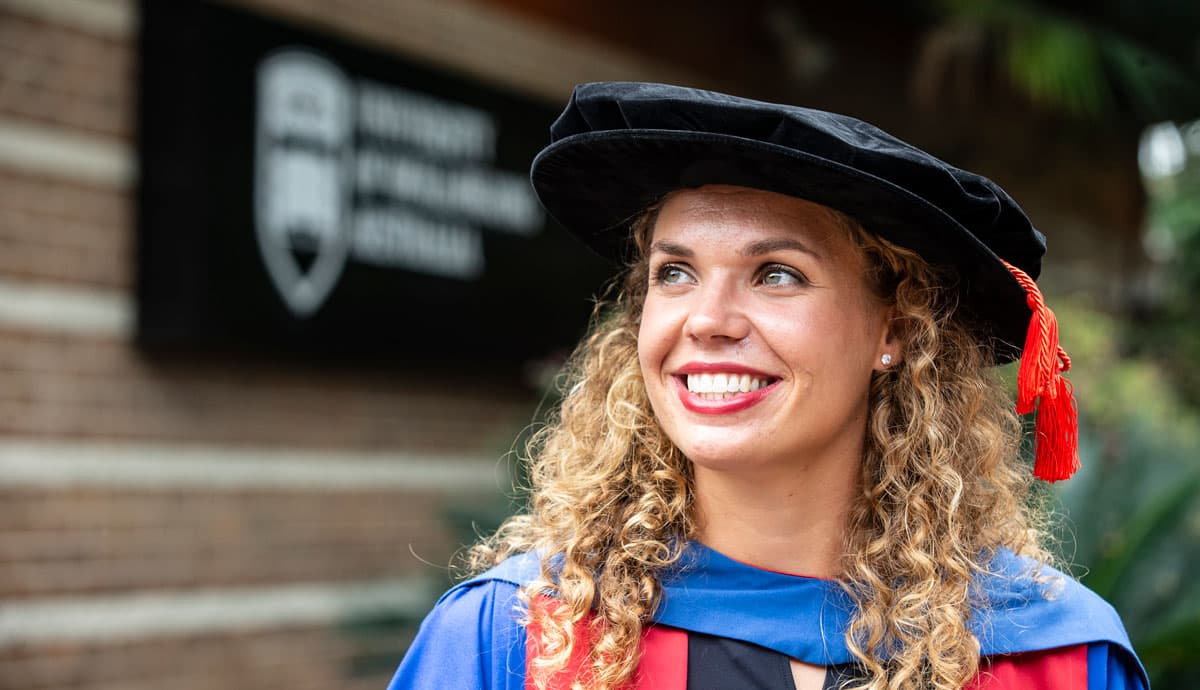In The Field
Research
PhD focuses on sedentary behaviour among preschool children

Freya Lucas
Apr 24, 2019
Save
Sitting is the new smoking. It is a line we have all heard before, one that emphasises the hazards of a sedentary lifestyle. It is usually associated with office jobs, but Dr Yvonne Ellis, from the Early Start Research Institute, said the dangers can begin at a much younger age.
Dr Ellis, who yesterday (Tuesday 23 April) graduated from the University of Wollongong (UOW) with a Doctor of Philosophy, has spent close to five years studying the impact of sitting on preschool children.Her research looked at how long preschoolers spend sitting at childcare and the measures that can be taken to encourage them to stand up and move more.
It was motivated by her own love of sport and exercise, and her concern at how embedded sitting has become in our culture, even at the age of three and four.
“From an early age, I have always had a passion for an active life,” said Dr Ellis, who came to UOW from the Netherlands. “This passion has tracked into adulthood. I still love it, I love trying new things. At the moment, I’m learning how to surf!
“I realised how important being physically active is for our health and wellbeing, and that these behaviours start at an early age.”
Dr Ellis completed a Bachelor of Physical Education in the Netherlands in 2011, but it had ignited a love of research and a desire to make an impact. She began a Masters in Biology of Human Performance and Health at Maastricht University, but during her studies, Dr Ellis had the opportunity to spend six months in Australia, working alongside Professor Tony Okely at the Early Start Research Institute.
Dr Ellis joined Professor Okely’s The Standing Preschool Project, which focused on sedentary behaviour at childcare centres in the Illawarra.
After finishing her Masters back in the Netherlands, Dr Ellis received an offer to further her study at UOW with a PhD, which would allow her to continue her research into how often preschoolers sit throughout their day at childcare.
“I love Australia, so I was very happy to be coming back to continue my research,” she said. “I looked at how active children are at childcare and how much time they spend in sedentary behaviour. My research showed that children at childcare spend 48 per cent of their day sitting. This can impact on their motor skills, if they are not active enough.
“This particularly applies to girls and preschoolers, and half of them are not meeting the sedentary behaviour recommendation.”
After her research revealed this surprising number, Dr Ellis set out to find ways to mitigate sedentary behaviour and help children get more activity into their childcare day.
She ran focus groups with early childhood educators. They began to encourage children to complete activities such as arts and crafts while standing up.
“Children are able to adapt their behaviour very quickly,” Dr Ellis said. “We wanted to create a flexible environment for them, in which they have the option do their activities while standing up. There are other ways to do things such as draw or make arts and crafts than by sitting down.”
Dr Ellis believes that helping children to make more active choices in their early years can provide the benchmark for the rest of the lives.“Sitting has been associated with lots of negative health consequences for adults,” she said. “But when those behaviours start early, they are more likely to track into the child’s later years and cause poor health later in life.
“If we can change their behaviour, find ways to break up all their sitting time and ensure they are moving, that can have a positive impact for a long time to come.”
Dr Ellis said she is still very active, playing tennis and learning to surf, which was encouraged when she was younger by her parents; her father runs marathons while her mother plays tennis.
She loves working with children and said their ability to adapt to changes in their environments means that this is the perfect time to ensure they are following healthy habits in their daily lives.“My research findings will hopefully provide guidance for the development of interventions and childcare policies to reduce young children’s sitting time to optimise young children’s health and wellbeing,” she said.
Dr Ellis’s parents and brother travelled to Wollongong for her graduation ceremony. Now working as a research assistant across a number of projects for Early Start Research Institute, Dr Ellis is hoping to remain in Australia and working in an area she is clearly passionate about. And despite the long journey of studying a PhD, far from her family, she has loved having the support of her supervisors, Professor Tony Okely and Dr Dylan Cliff, as well as her fellow postgraduate students.
“There is a group of us PhD students who don’t have any family in Wollongong, and we all get together and hang out. It has been great to have their support and help during the past four and a half years.”
This article has been republished with permission from University of Wollongong.
Don’t miss a thing
Related Articles



















